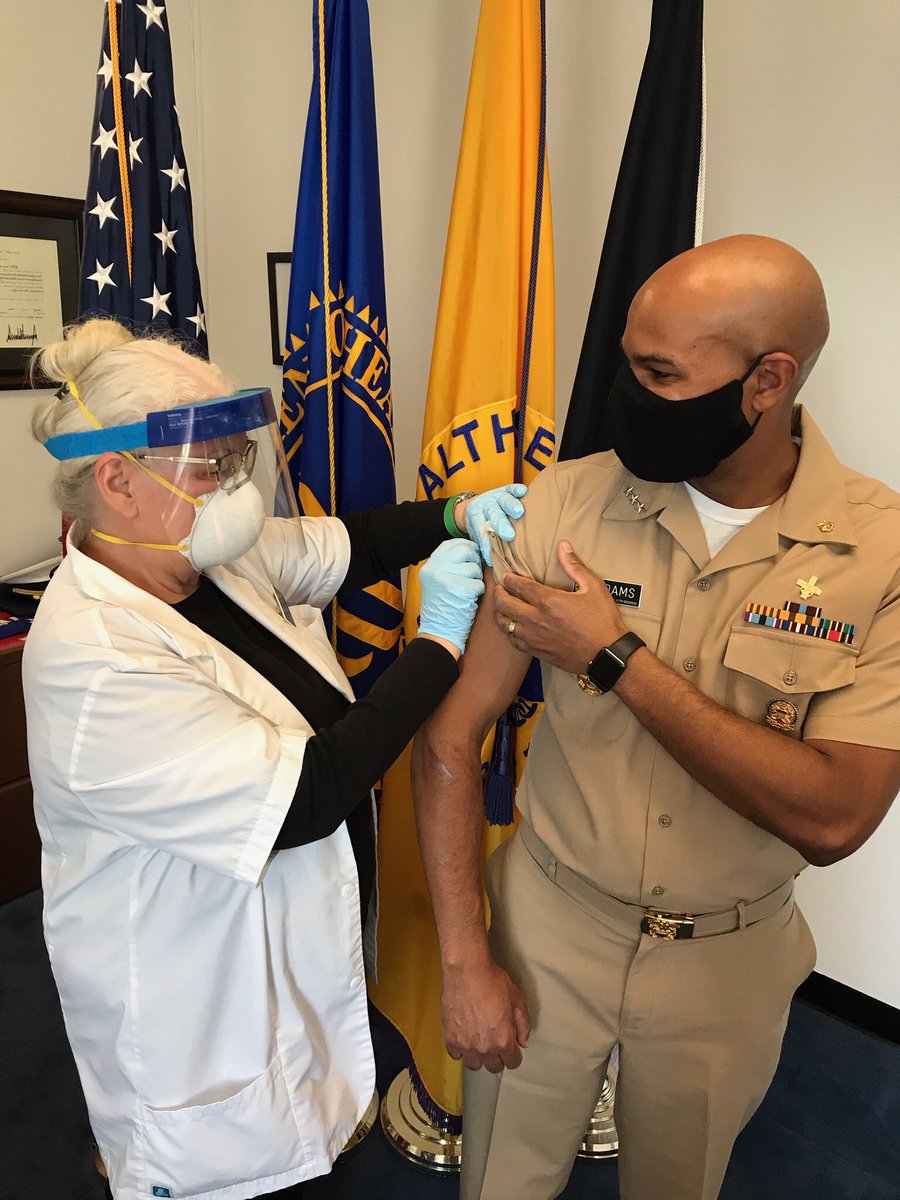A #SaturdayThoughts 🧵 on a common #Flu FAQ.
Q: What about people who get a seasonal flu vaccine and still get sick with flu symptoms?
A: There are several reasons why someone might get flu symptoms, even after being vaccinated against flu...👇🏽
(1/?) cdc.gov/flu/prevent/mi…
Q: What about people who get a seasonal flu vaccine and still get sick with flu symptoms?
A: There are several reasons why someone might get flu symptoms, even after being vaccinated against flu...👇🏽
(1/?) cdc.gov/flu/prevent/mi…
One reason is that you can become ill from other viruses besides flu- e.g. rhinoviruses, which are associated w/ common cold, cause symptoms similar to flu, & also spread and cause illness during #flu season. The flu vaccine only protects against flu, not other illnesses. (2/?)
A second explanation is that you can be exposed to #flu viruses shortly before getting vaccinated, or in the 2 week period afterwards that it takes to develop immune protection. This exposure may mean you become ill with flu before protection from vaccination takes effect. (3/?)
A third reason why some people may experience #flu symptoms despite getting vaccinated is that they may have been exposed to a flu virus that is very different from the viruses the vaccine is designed to protect against... (4/?)
The ability of a #flu vaccine to protect depends on the similarity or “match” between the viruses selected & those spreading/ causing illness. There are many different flu viruses that spread and cause illness among people. Understanding Flu Viruses cdc.gov/flu/about/viru… (5/?)
The final explanation for experiencing flu symptoms after vaccination is #flu vaccines vary in how well they work & some people who get vaccinated still get sick. But even when that happens vaccination has been shown to reduce severity of illness and chance of death. (6/?)
The bottom line is there are many valid reasons you or someone else may believe you got “the flu” after being vaccinated. But it doesn’t mean the #FluShot doesn’t work- in fact it could still save your life.
So make an appointment to get your flu vaccination today! (Fin)
So make an appointment to get your flu vaccination today! (Fin)

• • •
Missing some Tweet in this thread? You can try to
force a refresh














